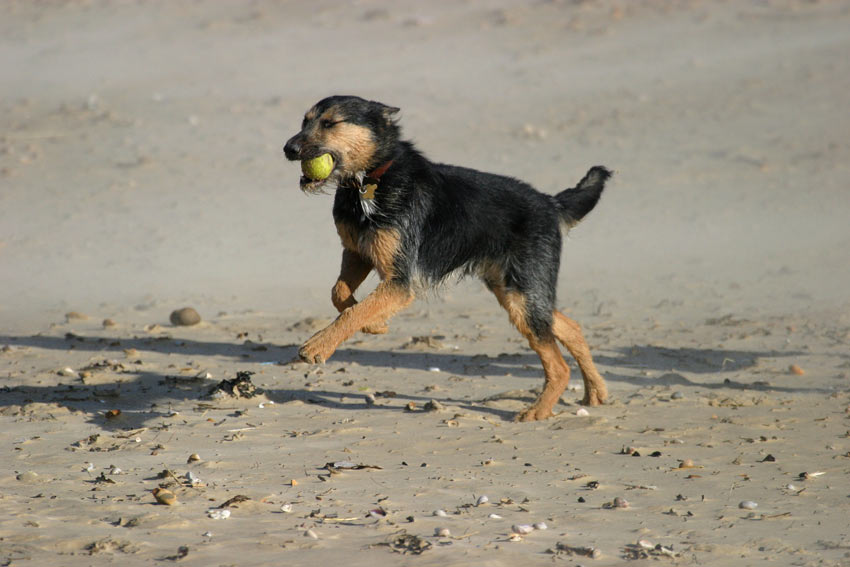
Mixed-breed dog lying on their Omlet Bolster dog bed in Prism Kaleidoscope.
Mixed-breed dogs are those made up of multiple breeds with often unknown parentage. These dogs are also sometimes referred to as mongrels or mutts, which can be misinterpreted as derogatory terms but ultimately, can all be used interchangeably. Traditionally considered the less desirable cousins of purebreds, in more recent times, these loveable pets are now being shown the appreciation and recognition they deserve.
Advantages of owning a mixed-breed dog
Genetically diverse, mixed-breed dogs have their own set of advantages compared to pedigree dog breeds, depending on what’s important to you as an owner.
Individuality
Each mixed-breed dog is unique. Think of them as a canine limited edition! The appearance or behavior of mixed-breed dogs cannot entirely be predicted but if you’re happy with not knowing what to necessarily expect, then a one-of-a-kind mixed breed could be perfect for you.
Price
Mixed-breed dogs are typically a lot cheaper than their pedigree pals or crossbreed counterparts. Not to be confused with mixed breeds, crossbreed dogs are those with two pedigree parents. These can come at a premium, with such “designer dogs” having soared in popularity in recent years.
You’ll find plenty of mixed-breed dogs in rescue centres that are in need of loving homes and come at a very small fee. Be mindful that most rescue dogs are not completely free though, as many shelters rely on donations to help other animals and potential healthcare costs.
Health
Mixed-breed dogs are less prone to inherited diseases than most pedigree dogs are, with a lower risk of genetic disorders such as hip dysplasia, common in breeds such as great danes and Saint Bernards. In turn, this translates into lower vet bills for mixed breeds.
Mixed-breed dogs also tend to live longer than pedigree breeds which means you could have your loving pooch around for a little longer. As a general rule of thumb though, larger dogs, even mixed-breeds, have a shorter lifespan than their smaller counterparts.
And the disadvantage?
Potential unknown ancestry
The sometimes unknown ancestry of mixed-dog breeds means that their size, appearance and behavioural traits are not guaranteed. If when choosing a dog, be mindful that if you have particulars such as wanting a pet that doesn’t shed, won’t grow beyond a certain size or will protect your home, opt for either a crossbreed dog that’s a mix of two breeds you’d be happy with either traits and appearance to be passed down, or a pedigree.
If you get your rescue mixed-breed dog as a puppy, you’ll also need to consider how large (or not!) they’ll grow. If you don’t feel as though you don’t have the room or a preference for a large dog, then a mixed breed might not be right for you. The size of a puppy’s paws is often a good indicator of how large they’ll be, though. The larger the paws in relation to their body, the bigger the dog will likely be when fully grown.
Doggy DNA testing can be done if finding out your mixed-breed dog’s heritage is important to you. But these tests do have their limitations such as being potentially inaccurate depending on which you take.
Omlet and your dog
Whether a mixed breed, crossbreed or pedigree dog is right for you, Omlet products help to build the wondrous connection between any pet and owner. From our dog crates to our ultra-soft dog blankets and dog beds built to last a lifetime, we’ve expertly engineered all the essentials for making your and your four-legged friend’s life better.




Comments
Melvyn, 24 December 2023
What is the breed of the dog on the beach?